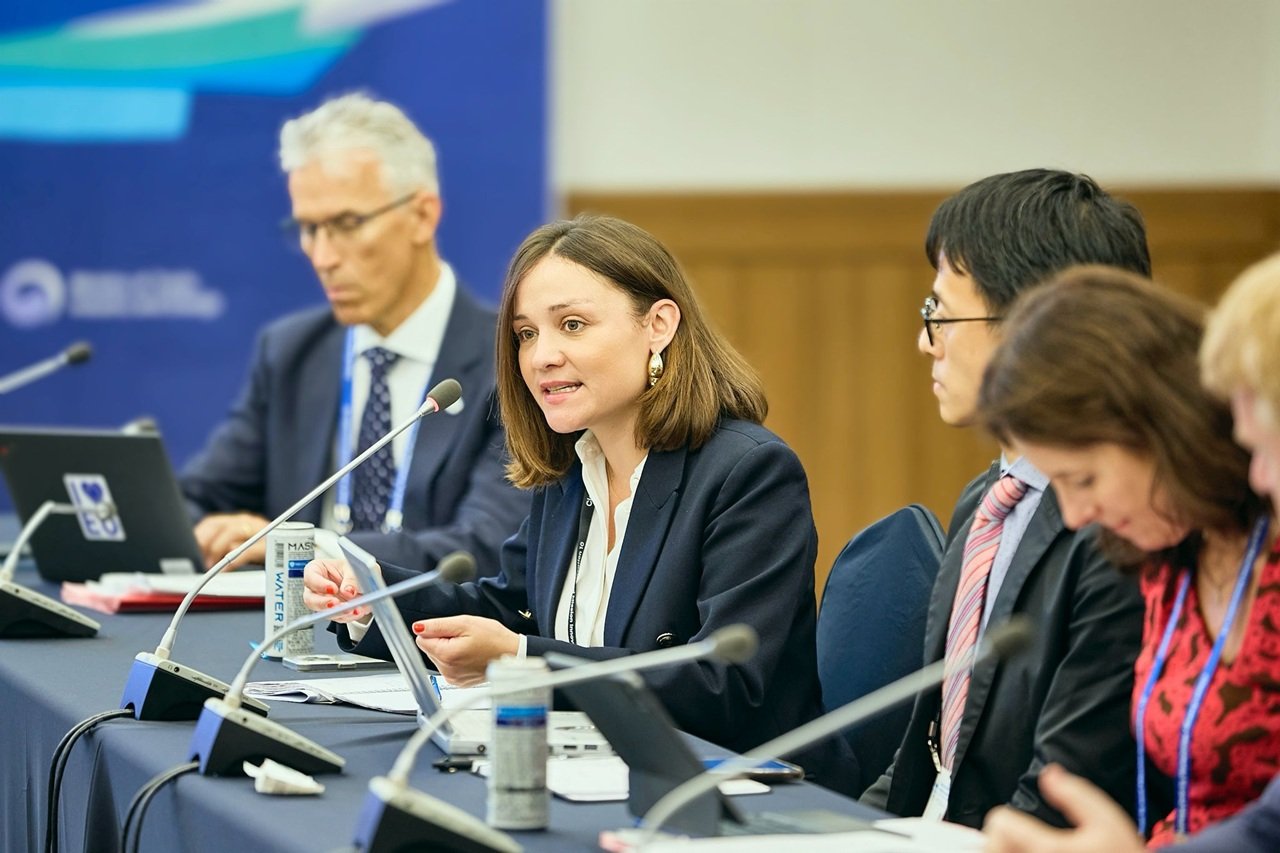The UNEP Cool Coalition participated in the 16th Clean Energy Ministerial (CEM16), held from 25 to 27 August 2025 in Busan, Republic of Korea, to promote international collaboration on sustainable cooling. Governments, industry leaders, and financial institutions gathered to accelerate the global clean energy transition.
At the high-level session Cooling Commitments in Action – A High-Level Convening for Scalable Impact, co-organized by the Cool Coalition, Rocky Mountain Institute (RMI), International Energy Agency (IEA), and the Super-Efficient Equipment and Appliance Deployment (SEAD) initiative, participants discussed how to turn global cooling commitments into practical outcomes. Key themes included equity and affordability, policy frameworks for predictable markets, and investment partnerships to scale solutions.
Jon Creyts, CEO of RMI, opened the session by emphasizing the urgency of addressing the cooling–climate feedback loop. Rosalinde van der Vlies of the European Commission highlighted the need to integrate cooling into energy efficiency and just-transition strategies. Brian Dean from Sustainable Energy for All stressed designing inclusive solutions for low-income and vulnerable communities.
Melanie Jans-Singh from the UK government pointed to pilot projects and international collaboration as key accelerators, while Arijit Sengupta from India’s Bureau of Energy Efficiency shared progress on scaling standards and programs to manage cooling demand. Takahiro Asahi of Daikin Industries outlined the role of manufacturers in delivering high-efficiency HVAC solutions.
Chloé Rosset of the Cool Coalition emphasized the need to align policy, finance, and technology to scale up impact. Closing remarks by Sungjin Oh from SEAD and IEA underlined that while solutions exist, collaboration is essential to make sustainable cooling a global standard.
Beyond the event, the Cool Coalition engaged in bilateral meetings to strengthen support for the Global Cooling Pledge, which targets a 68% reduction in cooling-related emissions by 2050. The Coalition also discussed the Beat the Heat in Cities initiative, developed with Brazil’s COP30 Presidency, and the EPIC Facility, which aims to provide technical support and reduce investment risk in signatory countries.
The Cool Coalition’s participation at CEM16 reaffirmed cooling as a central issue for sustainable development and climate resilience.
Source
